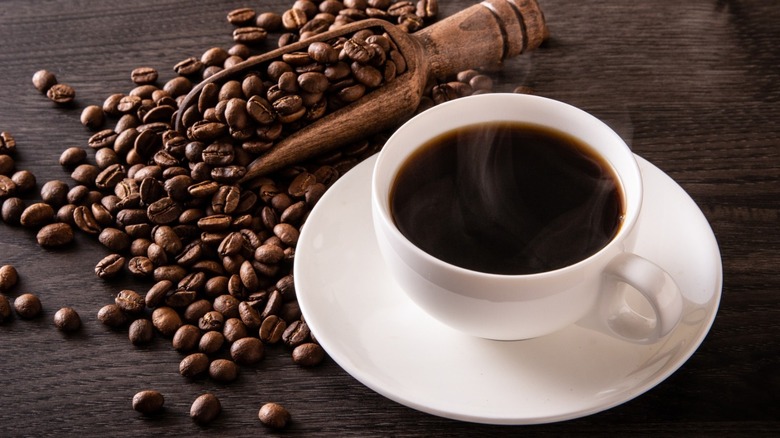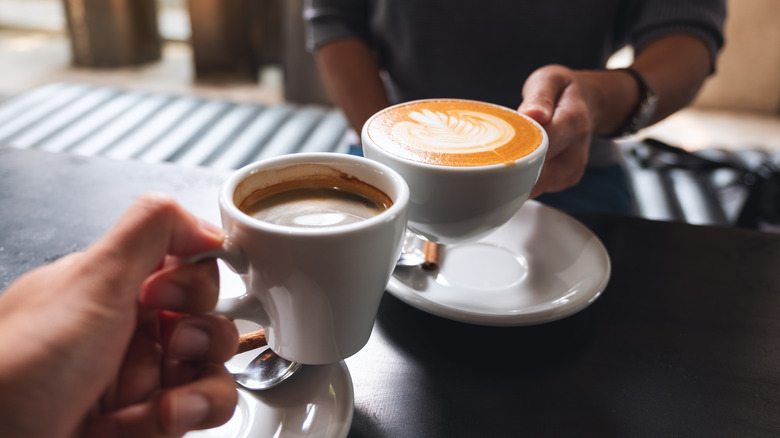Did The Boston Tea Party Really Affect Americans' Preference For Coffee?
It's a subject that you've heard about from elementary school to high school: the Boston Tea Party. Whether it was through "Schoolhouse Rock" or through one of those hefty textbooks, you know that the Boston Tea Party was the act of American colonists sneaking onboard British cargo ships and dumping the cargo of imported tea into Boston Harbor (via HISTORY). This was done out of protest against the high taxes on tea British Parliament was imposing on the colonists.
But did the Boston Tea Party influence how Americans viewed tea and coffee? Tea was undoubtedly a popular drink in the fledgling days of the United States, with American tea company Oliver Pluff claiming that colonists drank an astounding two million pounds of tea in 1768 alone. If the Boston Tea Party was a sign of rebellion against the British's unfair taxes, however, wouldn't the tea-loving colonists switch to another type of caffeinated drink, such as coffee, to show support for the pro-American cause? Could this be the reason why, unlike our neighbors across the ocean, Americans aren't commonly known for tea?
According to some sources, America's love for coffee may not be founded on sticking it to the British but rather because of economic reasons.
Americans liked coffee more because it was cheaper
While colonial Americans and modern-day Americans do enjoy a good cup of tea, the reason coffee took such a stronghold here in the United States was simple: It was cheap to get. According to the Journal of the American Revolution, coffee imported from Brazil or the Caribbean was cheaper than paying for the Chinese or Indian-imported tea from Britain. While tea could be withheld from the colonists under embargoes or restrictions, coffee was always available in case tea couldn't be acquired. The Journal for the American Revolution does note, however, that were some boycotts of tea in 1774, but they didn't last too long due to "too many fond memories."
Just what was the deal with coffee in colonial America then? According to the American Battlefield Trust, coffee houses were not only popular hang-out spots for gossip but also important centers for political discussion. Coffee also required a license to sell in those days, with a Massachusetts woman named Dorothy Jones being the first person to legally sell coffee in the colonies.
While we don't enjoy tea as much as our friends over in England, Americans can at least be proud of how much coffee we drink every year.

